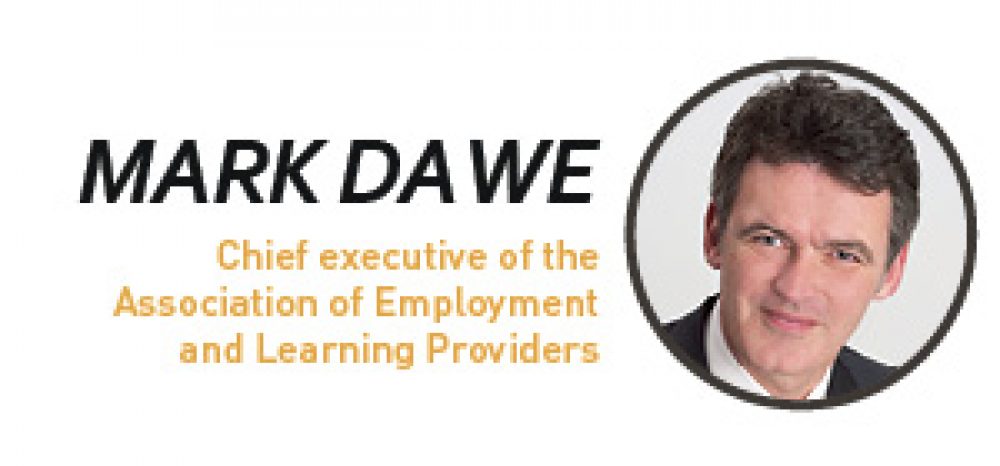Three years in, it’s a critical time for traineeships. Mark Dawe argues that we need to leave them be to let them flourish.
Traineeships last an average of between 12 and 16 weeks, according to feedback from providers. This enables quicker progression into an apprenticeship or work, and the young people themselves say that they feel more valued as they are not working so long “for free”.
The average duration relates to a discussion which the AELP has been having with Ofsted and the Skills Funding Agency (SFA) over the provision of remedial English and maths within a traineeship.
The experience of an increasing number of AELP members is that despite achieving outstanding outcomes in jobs, apprenticeships and substantive FE, they are finding themselves threatened by the SFA with contract termination.
This is due to statistics based solely on qualification outcomes. They are often given required to improve grades by Ofsted based solely on their trainees’ English and maths results, as the regulator is not willing to accept destination data as robust evidence.
This is causing many providers start to scale down or withdraw from involvement in traineeship delivery, when the apprenticeship reforms and wider skills programme desperately need them to stay engaged.
It is not that there aren’t the learners, and it isn’t that there aren’t providers with excellent programmes achieving the desired outcomes; it is because the funders and the inspectorate are looking at the wrong things and punishing providers unfairly.
We are therefore calling for traineeships to be removed from the standard SFA minimum performance qualification statistics, with the focus instead on jobs, apprenticeships or further substantive learning outcomes.
Similarly, we want future Ofsted inspections to reflect this approach. Our members are desperate to drive this agenda forward – instead they are being driven away from it. The SFA data for 2014-15, which FE Week published on June 3, showed that 61 per cent of trainees had a positive progression from their programme last year.
Looking at these figures reminds us what traineeships are about.
Most young people not going down the higher education route will tell you they want to be earning money.
They are not exclusively a pre-apprenticeship programme and ministers made this very clear when the original framework was published – sustainable employment is also considered an equally successful outcome.
The clearly stated aim of the BIS/DfE guidance Traineeship Framework for Delivery 2015 – 2016 published in March 2015 is “to support progression into an apprenticeship or sustainable employment … or undertake further learning”.
Former skills minister Nick Boles added that “we owe it to these young people to retain this focus on quality outcomes, which is why we have strengthened the use of performance data in 2015/16”.
For a programme that’s less than three years old, a progression rate of 61 per cent is a respectable beginning.
Its importance will grow in the context of the apprenticeship reforms being introduced next April.
With an additional 100,000 apprenticeship places a year expected to come on stream, traineeships should play a major role in getting more young people prepared for them, if they are backed by the required funding.
But we should not also forget that 865,000 young people are still classified as NEET (not in education, employment or training), which is far too high given that an economic recovery has been underway for over two years.
Talk to most young people not going down the higher education route and they will tell you that they want to be earning money. So those trainees landing a job should have their success celebrated just like others securing an apprenticeship.
Of course we would want to see many of those young people have access to more training once in work, but when supporting those who frequently come from very disadvantaged backgrounds, we should be realistic about taking one step at a time.
In fact, once in employment, many young people then find the motivation to undertake FE and training.
Over the longer term, the funding of traineeships under the English devolution arrangements and the Sainsbury Review recommendations may pose further challenges.
So for now, we need a period of stability and sustained investment in a national programme which enables providers to grow traineeships as a significant stepping stone to apprenticeships and employment.
This article was originally published in the OCR Traineeships supplement .








Your thoughts